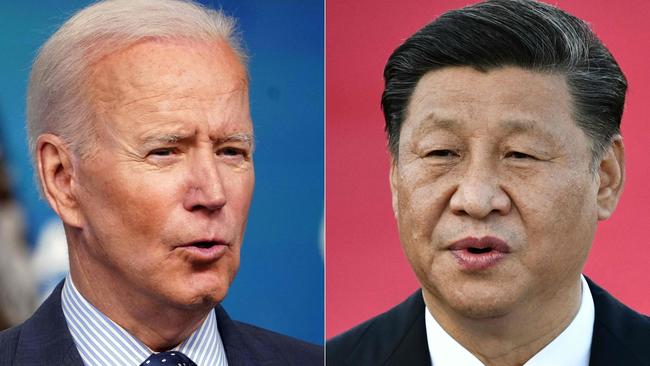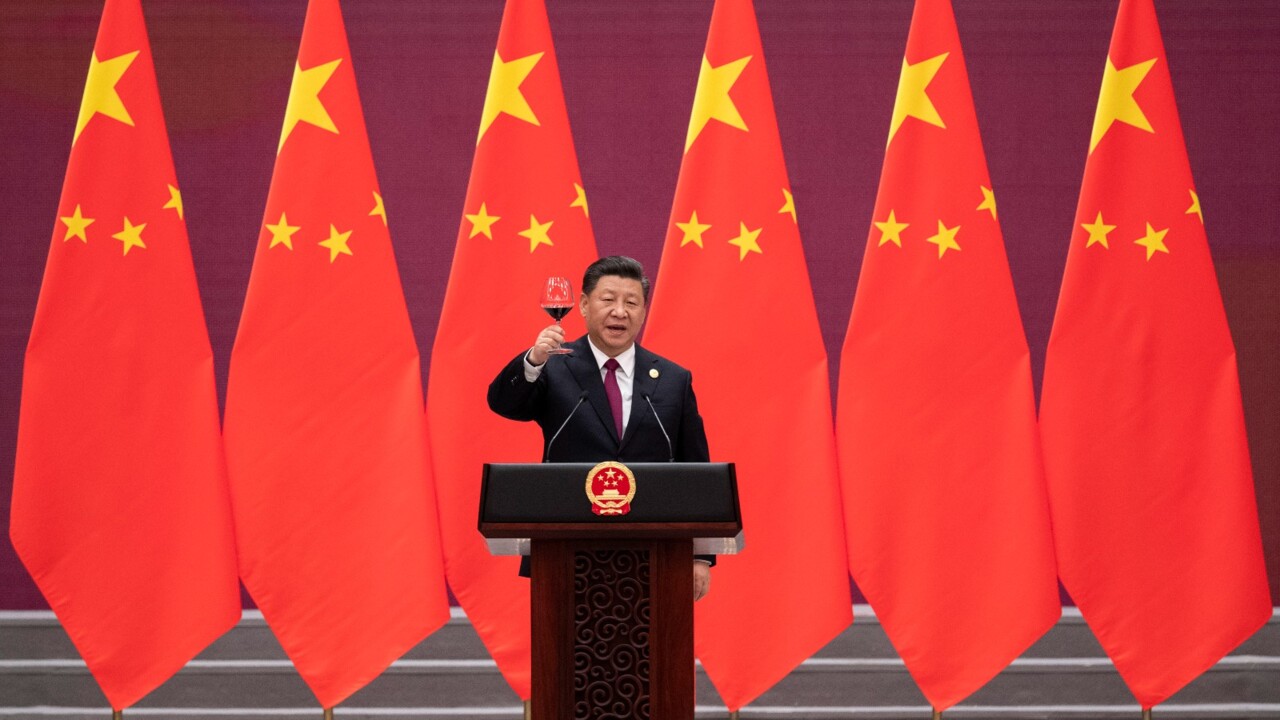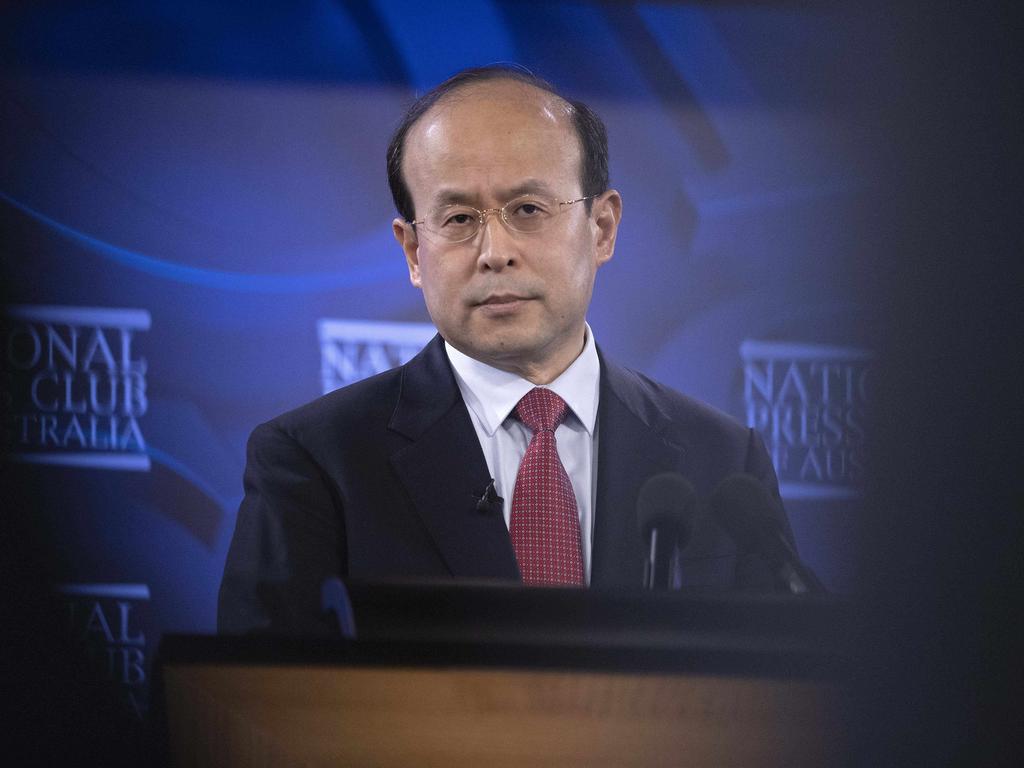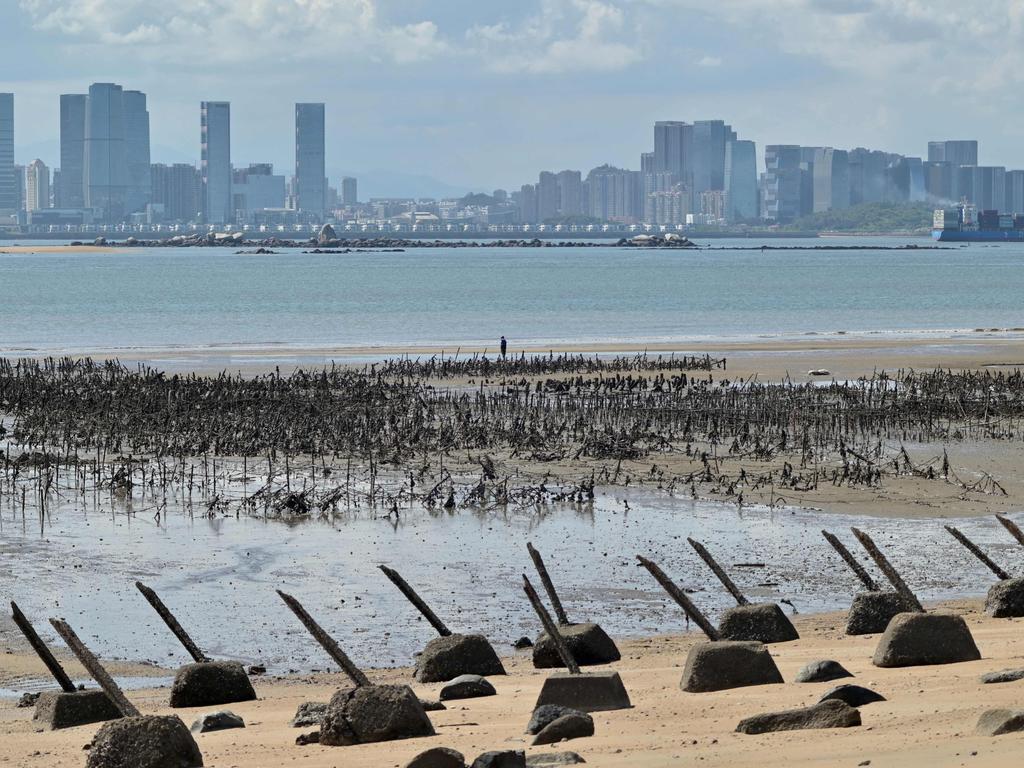Xi Jinping told Joe Biden: no plans for war with US
Xi Jinping agreed to the phone conversation with Joe Biden before Nancy Pelosi’s visit to Taiwan to minimise the risks of a conflict with the US.

Four days before US House Speaker Nancy Pelosi’s visit to Taiwan, Chinese leader Xi Jinping got on the phone with President Biden and delivered a message: Now isn’t the time for a full-blown crisis.
Mr. Xi — who views bringing Taiwan under Beijing’s control as central to his vision of Chinese national revival — was frustrated that months of diplomatic efforts had failed to stop Mrs. Pelosi’s planned trip, according to people close to China’s decision-making process.
In the July 28 conversation, Mr. Xi warned Mr. Biden of unspecified consequences if Mrs. Pelosi went to Taipei, people briefed on the call said. But he also indicated that he had no intention of going to war with the U.S. and said both sides needed to “maintain peace and security, ” according to the people.
Asked about the discussion, Liu Pengyu, spokesman for the Chinese embassy in Washington, said: “President Xi elaborated on China’s principled position on the Taiwan question” in his discussion with Mr. Biden.
Biden administration officials said they made it clear to Beijing that Washington is committed to the “One China” policy that has long underpinned the relationship between the U.S. and China but that members of Congress have the right to travel to Taiwan.
After Mrs. Pelosi left Taiwan, China reacted with days of large-scale military exercises that effectively imposed a temporary blockade on democratically governed Taiwan, halted cooperation with Washington on climate and some other issues and froze some military contacts.
China’s leaders were seeking a calibrated response that was forceful but that wouldn’t provoke an escalatory response from Washington and its allies, said the people familiar with Beijing’s thinking.
For Mr. Xi, an important factor was his desire for stability ahead of a high-level Communist Party conclave later this year when he is expected to be confirmed as the country’s paramount leader for another five years.
Still, China’s actions have further strained relations with the U.S. and raised security concerns among its allies. Other countries across Asia and Europe fear Beijing’s approach could herald the start of a new phase of more direct pressure on Taiwan.
“Beijing will be uber-reactive to Taiwan going forward,” said Jude Blanchette, a China specialist at the Center for Strategic and International Studies in Washington. “That is the defining feature of the U.S.-China relationship for many months to come.” Speaking to Mr. Biden just before Mrs. Pelosi’s visit was politically risky for Mr. Xi, who is eager to project strength in the face of rising discontent within China as a result of his Covid-19 measures and other policies.
In the end, Mr. Xi decided to talk to Mr. Biden to minimise the risks of a conflict with the US, according to the people familiar with the decision-making process.
China’s foreign-policy establishment has historically been careful about scheduling leader-to-leader engagements, concerned about a loss of face should the other side do something contrary to Beijing’s interests soon after the bilateral exchange.

In 2016, for instance, three months after Mr. Xi met with then-President Obama in Washington and agreed to sign the Paris Agreement on climate, Mr. Obama welcomed to the White House the Dalai Lama, the Tibetan spiritual leader reviled as a separatist by Beijing. Memories of the ensuing political blowback in China remain fresh in Beijing’s diplomatic circles.
Chinese officials had warned Washington against a Taiwan visit by Mrs. Pelosi since April, when news reports first revealed the speaker’s travel plans. Mrs. Pelosi ultimately had to postpone the journey after testing positive for Covid-19.
Beijing worries that Mrs. Pelosi’s visit could trigger a “domino effect” of other world politicians travelling to Taipei, boosting its international standing and potentially encouraging a declaration of independence, according to the people with knowledge of Chinese thinking.
Even though Beijing’s long-stated goal is to bring Taiwan under its rule, the people said, its focus for now remains preventing the self-governed island from moving toward formal independence.
In an article published last month by the official People’s Daily, Liu Jieyi, director of Beijing’s Taiwan Affairs Office who is tipped for a top foreign-policy position in Mr. Xi’s next term, outlined a framework for resolving the Taiwan issue that pledged to “resolutely crack down on Taiwan independence separatist acts.” The article still listed “peaceful reunification” as its basic principle, but didn’t renounce the use of force.
On Wednesday, the Taiwan Affairs Office followed up with its first policy paper on Taiwan in 22 years, reaffirming that approach. But in one notable change from previous policy papers in 1993 and 2000, the latest version removed a clause that ruled out the stationing of China’s military in Taiwan should the island submit to Beijing’s policy of “one country, two systems.” In the past few weeks, it became increasingly clear there was little Beijing could do to deter Mrs. Pelosi’s trip. “China has done everything diplomatically possible,” said Mr. Liu the Chinese Embassy spokesman.
Taiwan was a key topic of discussion between Messrs. Biden and Xi when they spoke on the phone.
Mr. Biden explained the division of governmental authority among the legislative, executive and judicial branches and reminded his Chinese counterpart of former House Speaker Newt Gingrich’s visit to Taiwan 25 years ago, according to the people briefed on the call.
In the end, both leaders agreed to maintain communication and to proceed with plans for a face-to-face meeting at an unspecified date, the people said. If such a meeting takes place after Mr. Xi secures his next term, it would be seen in Beijing as a status booster for the Chinese leader.
While trying not to dramatically escalate tensions with the U.S. for now, Mr. Xi has had to make a show of strength domestically. For instance, the Chinese media livestreamed the launch of missiles into the waters around Taiwan. And nationalistic media personalities and scholars representing more hawkish viewpoints within the government had warned of a possible war in the Taiwan Strait.
Some foreign-policy analysts expect Mr. Xi to grow bolder in confronting the U.S. and pressuring Taiwan and other jurisdictions in his next term.
“Xi’s top priority right now is stability,” said Yun Sun, director of the China program at the Stimson Center, a Washington think tank. “Beijing so far has shown a great deal of restraint but that’s a short-term tactic aimed at preventing the relations with the U.S. from spinning out of control.”
Dow Jones







To join the conversation, please log in. Don't have an account? Register
Join the conversation, you are commenting as Logout